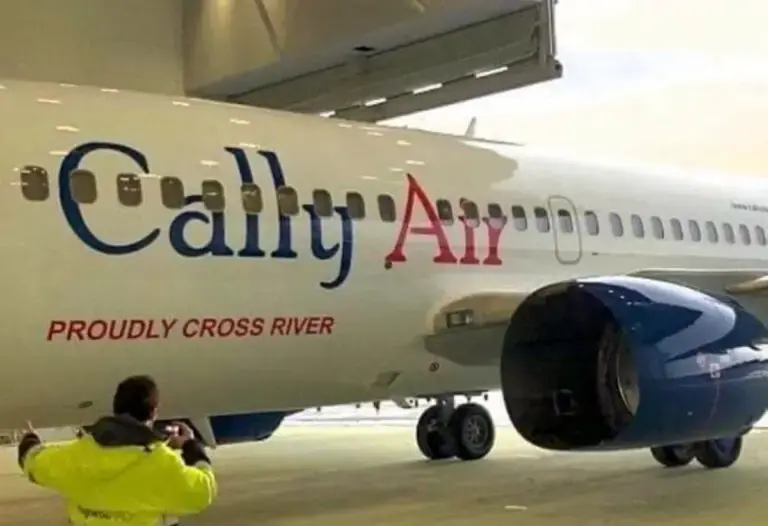In November 2023, Ibom Air, Nigeria’s premier indigenous airline, indefinitely suspended flights to Calabar, the Cross River State capital and a top tourist destination. The timing and manner of the suspension raised suspicions that the airline, owned by Akwa Ibom State, deliberately aimed to divert visitors planned for the December holiday to their own state.
Despite Ibom Air’s defence of its decision following my publication on the matter, the government acted swiftly by directing Aero Contractors, operators of the proposed CallyAir Airlines aircrafts, to resume operations to Calabar and crashed the airfare to a reasonable price. Also, Air Peace was encouraged to increase flight frequencies to the city to ensure continued air connectivity.
While these measures provided temporary relief, the flight challenges facing Calabar have since worsened. With the state’s reputation as Nigeria’s tourism hub, more needs to be done to provide a lasting solution to this issue. Undoubtedly, the Governor Bassey Otu’s administration has continued to build on the aviation sector’s progress initiated by his predecessor, Senator Ben Ayade with the acquisition of two new aircrafts and ongoing work at the Obudu Cargo International Airport. But these efforts, particularly the new aircrafts is yet to improve the situation.
READ: Gov. Otu Signs N437Bln Supplementary Budget Into Law, To Buy More Aircraft
To make matters worse, Air Peace has also suspended flight operations to Calabar indefinitely. The current flight schedule by the two airlines flying Calabar is woefully inadequate. Both Aero Contractors and Ibom Air are operating only four to five flight schedules per week. This situation is becoming a major bottleneck for tourists and investors seeking to enter or leave the state as the airlines now have undue control over movement in and out of Calabar.
Besides, the airfare to Calabar is prohibitively expensive. Flights in and out of Margaret Ekpo International Airport, Calabar, are currently the most costly in Nigeria. On Monday, June 16, 2025, Ibom Air’s fare from Calabar to Lagos is N202,000 whereas the same airline charges N152,000 for the Abuja to Lagos route, despite both routes covering roughly the same distance. Travelers are being charged most time as high as N250,000 for a one-way economy seat, with return tickets from major cities like Abuja or Lagos averaging N400,000; and passengers must strictly adhere to the limited schedules offered by the airlines.
READ MORE: All You Need To Know About Aero Contractors And Cally Air (Aero Cally)
Ironically, while flights to Calabar are inconsistent and overpriced, Ibom Air operates multiple daily schedules to Ibom International Airport, Uyo. The four to five flights per week to Calabar by two airlines are spread across different days, with no airline operating more than one schedule per day, but for Uyo, it’s an average of three schedules daily. This unfortunate situation has led to a shift of passengers to Uyo Airport because from morning till evening, there is always available flights to Nigeria’s major cities.
Calabar, once a top destination, is losing revenue, tourists, and investors daily due to this. The roads are bad, the sea is unsafe, and the airport is not busy. Whether acknowledged or not, Akwa Ibom state, which was carved out of Cross River, has emerged as a regional competitor and clear winner in this unintended competition. Despite the mother state’s current financial constraints compared to its daughter, it is important that it remains competitive in areas like access to the state.
Undeniably, while passenger traffic to Calabar has declined from its peak 15–20 years ago, there remains a substantial number of travelers to justify daily flights, which could keep airlines profitable.
Ideally, the least should be daily flights to Calabar. From personal observation, on days when Calabar-bound passengers can’t fly directly to the city, they often opt for Uyo, incurring additional costs for taxi fares, accommodation, food, etc. This results in revenue lost, where resources that could have boosted the local economy of Cross River instead benefit Akwa Ibom. This is even as these passengers are also exposed to the risks associated with the insecure sea route or the poor road network.
While the state government’s efforts so far are commendable, more needs to be done to find a lasting solution to this challenge. To address this, the government should expedite the process of launching the proposed state-owned airline. However, in the interim, Air Peace should be encouraged to resume operations to Calabar, despite its reliability issues. Also, the challenges hindering the deployment of the newly acquired aircraft should be addressed so they can begin to operate under Aero Contractors like the first two while the state fulfills regulatory requirements to establish its own airline.
Inyali Peter, Ph.D., a journalist, teacher, and businessman, is a Cross Riverian. He writes in from Abuja, the Federal Capital Territory.
NB: Opinions expressed in this article are strictly attributable to the author, Inyali Peter Ph.D, and do not represent the opinion of CrossRiverWatch or any other organization the author works for/with.
Since You Are Here, Support Good JournalismCrossRiverWatch was founded on the ideals of deploying tech tools to report in an ethical manner, news, views and analysis with a narrative that ensures transparency in governance, a good society and an accountable democracy. Everyone appreciates good journalism but it costs a lot of money. Nonetheless, it cannot be sacrificed on the altar of news commercialization. Consider making a modest contribution to support CrossRiverWatch's journalism of credibility and integrity in order to ensure that all have continuous free access to our noble endeavor. CLICK HERE |
New Feature: Don't miss any of our news again.Get all our articles in your facebook chat box.Click the Facebook Messenger Icon below to subscribe now
Text Advert by CRWatch :Place Yours

Will You To Learn How To Make Millions Of Naira Making Special Creams From Your Kitchen?.Click Here
Expose Your Business And Make More Sales. Advertise On CrossRiverWatch.com Today



Leave feedback about this